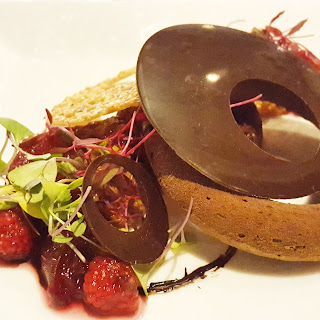Can chocolate help you get an A?
It seems so, if it's the right kind!
As an entrepreneur who founded the original chocolate tours and opened them in multiple cities, and am now a chocolate consultant and broker, I love sharing fine and craft chocolate with my Kendall College students in my role as adjunct professor of business!
The chocolate and cacao I deal in is not sugary candy. It is transparent-trade superfood. And it's a good business case study for supply chains, ethics, and critical thinking.
How to make sure your chocolate is healthy and was made from ethically sourced cacao instead of
child slave cacao?
As my A-Listers know: read the label!
1.
Look for the origin of the cacao, just as you would for wine or coffee. If the cacao is from Ecuador, Madagascar, or any other stated location, great! If the label is silent, what is the chocolate company hiding? They're hiding labor abuses on Ivory Coast cacao farms, where 60% of the world's cacao comes from, including the cacao in commercial drugstore chocolate.
2.
Look for the ingredients. Cacao and sugar are all you need to make chocolate! If you can't pronounce an ingredient, or it is a chemical lab concoction, or non transparent, why would you eat it? Back away from the chocolate bar, and find real chocolate!
3.
Enjoy: look, sniff, taste. Engage your senses to enjoy craft chocolate. Real chocolate is good for your health, your tastebuds, the environment, and farming families around the world.
 |
| #onebaronetree: another brand I shared with students, Original Beans, plants or maintains a cacao tree for every chocolate bar sold. |
And, good chocolate boosts
brain power, circulation, and overall health.
Keep eating real chocolate, and see you on the A-List!
Valerie Beck
Kendall College Contributing Faculty
CEO/Founder
Chocolate Uplift
@chocolateuplift


























